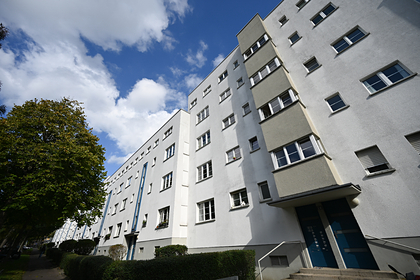German central bank: banks should prepare for risks in the residential real estate market 
the threat of a banking bubble from the residential real estate market. He announced this in his review of financial stability for 2021.
According to the Central Bank of Germany, the country's banks should prepare for the risks in the residential real estate market due to rising prices. According to the financial regulator, in 2020, house prices in the country rose sharply, by an average of 6.7 percent. At the same time, the Central Bank fixes overpricing in comparison with the real value of real estate. Thus, prices were overstated by 10-30 percent.
In turn, banks increased the volume of loans issued for the purchase of housing; in the third quarter of 2021, the volume of loans issued increased by 7.2 percent compared to the same period in 2020, according to the Central Bank. In connection with “inflated” real estate prices, the regulator fears that in the future the expected drop in housing prices may negatively affect the state of banks, given that the cost of collateral for loans issued by banks will also be overestimated.
The financial regulator also noted that since the start of the pandemic, the country has reduced the countercyclical buffer of banks' capital – a mechanism that protects the banking sector from threats during a period of excessive lending growth through higher requirements. The current mechanism does not take into account rising house prices, the central bank recalled, and banks may not have enough capital if loans begin to depreciate. “The high proportion of long-term loans makes the banking system vulnerable. For example, about half of bank loans for residential real estate have a fixed interest rate for more than ten years, “- says the survey.
Problems in the banking sector are not the only worries of the German authorities. Thus, the business climate index among German enterprises has been falling for the fifth month in a row. Businesses are losing optimism and confidence in the growth of the economy due to supply problems in the manufacturing industry and a new surge in coronavirus diseases. The survey also showed that CEOs are less satisfied with their current situation, and their expectations for the first half of 2022 have become more pessimistic.